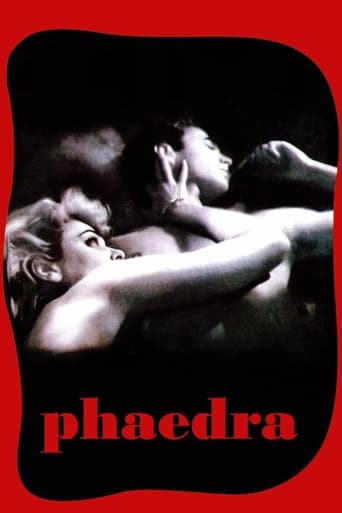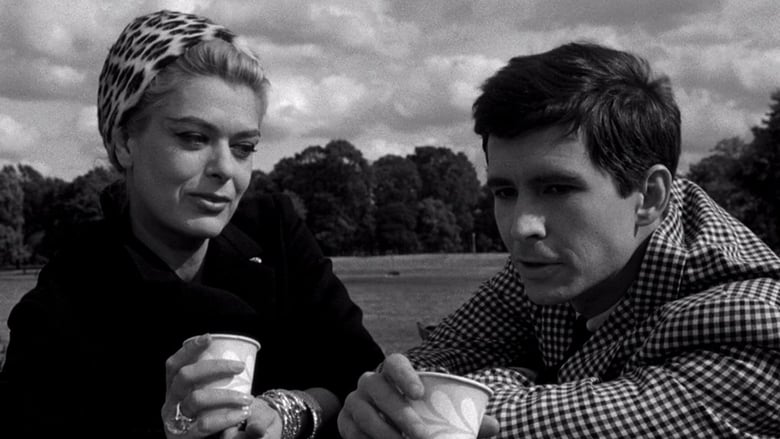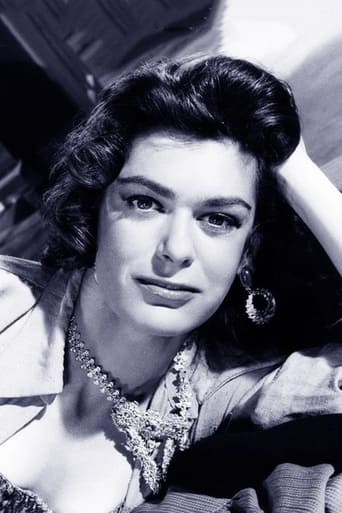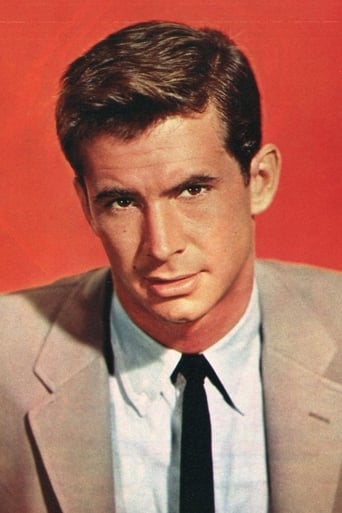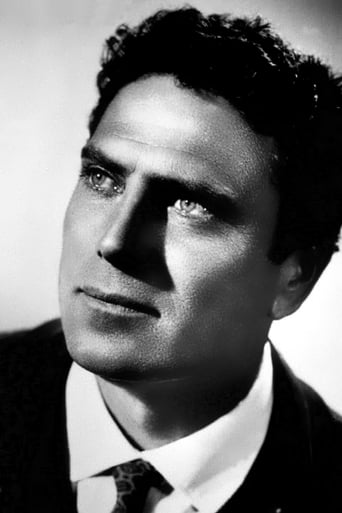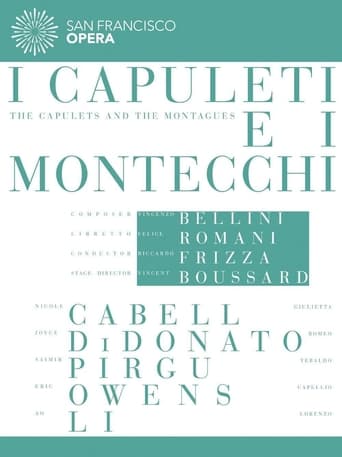Phaedra (1962)
A retelling of the Greek myth of Phaedra. In modern Greece, Alexis's father, an extremely wealthy shipping magnate, is married to the younger, fiery Phaedra. When Alexis meets his stepmother, sparks fly and the two begin an affair. What will the Fates bring this family? Alexis's roadster and the music of Bach figure in the conclusion.
Watch Trailer
Cast
Similar titles
Reviews
Truly Dreadful Film
Simply Perfect
One of my all time favorites.
A film of deceptively outspoken contemporary relevance, this is cinema at its most alert, alarming and alive.
I watched this film last night for the second time in my life. Being someone who grew up in the 60s and 70s, I'm used to - and rather fond of - the films of that time. And I like Dassin. I enjoyed Topkapi and I ADORE Rififi. But I found this film did not age very well. The acting is unnatural and over the top, which turns the film into a melodrama rather than a tragedy.They made a lot of fuss about Mercuri in those days. She was considered to be one of those "not beautiful, but fascinating" women. Maybe she was, but I always thought her a rather alarming female, with her decidedly masculine face, the nearly demented intensity of her eyes, her guttural voice and her strident laugh. Then again, I am a woman myself, so maybe it's just that her 'je ne sais quoi' is lost on me. I would not have chosen Perkins to play Alexis, as I never considered his type to be the sort that ignites an overwhelming passion in a woman's heart. But that might be just my personal taste. I liked the way Dassin did the love scene between Alexis and Phaedra. Truly beautiful and erotic, without all the biology text-book, clinical details they inflict on us these days. And Theodorakis' soundtrack is spot on (he is Greek, after all).All in all, this is the sort of film that I watch more for nostalgic reasons than anything else. But I would not put anything on hold for it.
Made during Jules Dassin's exile days, the follow-up of NEVER ON Sunday (1960), which catapulted his wife Ms. Mercouri into international stardom, PHAEDRA is a modern transposition of Euripides' HIPPOLYTUS, a stigmatized love affair between a woman and her stepson. Phaedra (Mercouri) is the second wife of Greek shipping tycoon Thanos (Vallone), her life couldn't be more perfect, she is born with a silver spoon in her mouth, Thanos is swept off his feet by her and they have a young son, and their family business is in full swing. The film's opening is a pageantry of baptizing a new vessel named after her, and she is extolled as a woman who can lay claim to whatever she wants, so it is quite surprising to find out that her downward spiral is entirely devoid of extraneous scheming, the green-eyed monster from the outside world has no say-so here, it is her wayward passion, becomes her own unmaking, because in the realm of dramaturgy, the equilibrium of perfection is destined to be violated, trampled and disintegrated to hit that high mark of pathos, which leads her to fall for Alexis (Perkins), Thanos' adult son from his first marriage, a nail in the coffin of that damned perfect life. Rotating between a virile Thanos and a swishy Alexis (a casting decision really make Phaedra's choice a feeble one), Phaedra is defenseless when facing the latter's childishness and impressionability, a maternal affinity soon shifts into a lust for carnality, Dassin's visual tack makes sure their liaison is a clash between fire and water in its literal meanings, and after the knee-jerking defense mechanism of staying away from each other, it is Phaedra who throws in the towel to the gnawing temptation and calls Alexis to Greece, apparently at the earnest behest of the unsuspected Thanos, where the drama takes its biblical toll to the ill-fated pair. The signs of tragedy are everywhere, from their first meeting in the British museum, to the arrival of the "coffin"-shaped present, till the tidings of the shipwreck of Phaedra's namesake, and the central triumvirate does beaver away in the fashion of cothurnus. Mercouri, emblazoned by Dior's haute couture, turns head with her mature appeal, pronounced confidence, simmering petulance and husky voice, a feisty defiance of the industry's inveterate ageism (a fringe benefit of marrying a named film director), but it is her ardent expressions of jealousy, condemnation and self- destruction (with those oceanic eyes!) lingers longer in retrospect. Perkins, on the other hand, doesn't strike gold in a role which should have been exuding with irresistible charm and sexual prowess, but his final ranting is pretty awesome to watch, when they are both embracing their quietus, the man crashes with blistering velocity and the woman withers in immobility. The Italian matinée star Raf Vallone, who is also in the pink with his affable if sometimes condescending mannerism as the two-timed Thanos, becomes most impressive when he receives his double- whammy in the climax, aggressively violent but also authentically heartbroken, that's all catnips for drama addicts. PHAEDRA, heavy on its dark and contentious mythos while light on the rationalism and finesse, is a gorgeous artifact made with ambition and tact, and bears witness to Dassin's maturing into an adroit dramatist, riding high with a great Ancient Greek tragedy, ironically, the film didn't fare well upon its initial release in USA, and 55 years later, its artistry beautifully holds sway to bewitch new spectators.
The powerful Greek shipowner and constructor Thanos (Raf Vallone) proposes to marry Phaedra (Melina Mercouri) during the baptism of a ship with her name. Phaedra, who is the daughter of Thanos'greatest competitor, is a bored woman and has a son from her first marriage. Thanos gives an expensive ring to Phaedra and soon he learns that his estranged son from his first marriage, Alexis (Anthony Perkins), has left the University of Economics in London to dedicate to paint. Thanos asks Phaedra to travel to London to bring Alexis to meet him in Greece. When Phaedra meets Alexis, she falls in love with her stepson and seduces him. Their doomed love affair leads the family to a tragedy."Phaedra" is a melodrama directed by Jules Dassin with his mate and future wife Melina Mercouri in the lead role. The storyline is based on the tragic story of Phaedra from the Greek mythology and this tale of obsession could have been a soap opera in the hands of another director. Last but not the least, the performances, locations and soundtrack are great. My vote is seven.Title (Brazil): "Profanação" ("Profanity")
How painfully true was John Simon's critical summary for 'Phaedra'; "Unfortunately Unforgettable". When I experienced this work as an impressionable youth going through the turmoils of young love and relationships it left me shattered. I knew I was in for a tour-de-force the instant that electrifying scream rang out before the main title! (sure would like to know who the creative genius was that came up with that stunning idea...don't believe I'd ever seen or heard that done before!) Here was my dream, a profound, life changing love - but with one huge problem it was doomed. The power of this film lies in the political connections that gave it birth. Firstly; director (Dassin) who had been hunted out of the homeland of his birth, never to return. Then his romantic involvement with a politically passionate Greek woman (Mercouri), born into a heavily political family in Athens and who would herself eventually be forced out of Greece. Add to this the politically persecuted Greek composer Mikis Theodorakis who, as with Dassin, was forced to flee his native country. This crew alone represented a powerful force of creative people with something to say! It's little wonder the first meeting between Phaedra and her stepson takes place in the British Historical Museum, in front of fragments of the Elgin Marbles, the Marbles that Mercouri would later devote so much time fighting for their return to Greece (a Greece that was also foolish enough to let many valuable artefacts go for monetary gain) Looking back at this great movie, my main regret is that almost none of those that make up the characters of Phaedra are particularly likable. We have overly rich and powerful people that live only for becoming richer. They are bored with themselves and are too often motivated towards immoral 'games' to alleviate boredom at the emotional expense of others.Deviating from our basic understanding of acceptable loving human relationships, all too often results in disaster, and here, the disaster builds like a tidal wave - one situation cascades from another like an avalanche. Apart from a basis in classic Greek literature (the pen of a man known as one of the most tragic of poets) Euripides' 'Hippolytus', what else makes Phaedra great? If you take away the astonishingly haunting music of Theodorakis with its song lyrics written by great Greek poet Nikos Gatsos, who helped make famous many melodies by Manos Hadjidakis and songs by Nana Mouskouri, the film would loose half of its considerable impact.Another vital element is the huge contribution of Turkish born lighting/cinematographer: Jacques Natteau known for his famous collaboration with Jean Renoir. Natteau's visuals draw you into each moment with striking emotional impact. On location shooting on the Island of Hydra supplies a grand setting. Hydra at that time was largely an Island without cars (Donkeys were, and still are, used for transport) Dassin either got special permission or used another location for the spectacular scenes involving Alexis' Aston Martin 'dream' car. Under Dassin's gifted direction these elements forge together an unforgettable cinematic experience.Melina Mercouri for me, is far from beautiful, and this stretched believability in the rapid seduction of young Alexsis just a little, but as described within the film... she has unique facial and physical qualities. The intense Anthony Perkins turns in a strong performance as the vulnerable, disintegrating, Alexis. Raff Vallone also delivers both a powerful and devastating performance as the shockingly betrayed Husband and Father. This is super strong storytelling that will haunt the sensitive viewer for many years. Yes Mr Simon, for any of it's regrets, it remains 'unforgettable'. Footnote: How tragic it is that the best arrangement/performance of the main theme music (with Oboe), was never included on any of the 'original' sound track recordings. With the 'Main Title' being the first thing you hear in the film (after that shock scream that is!), why would you leave it off!? I imagine the only person still alive that could explain would be Mr Theodorakis, and while it would be interesting, it's rather unlikely to happen. Not withstanding, it has taken over 50 years for MGM/UA to finally make this film available on a quality 'studio' DVD, so, small miracles do happen! KenR
